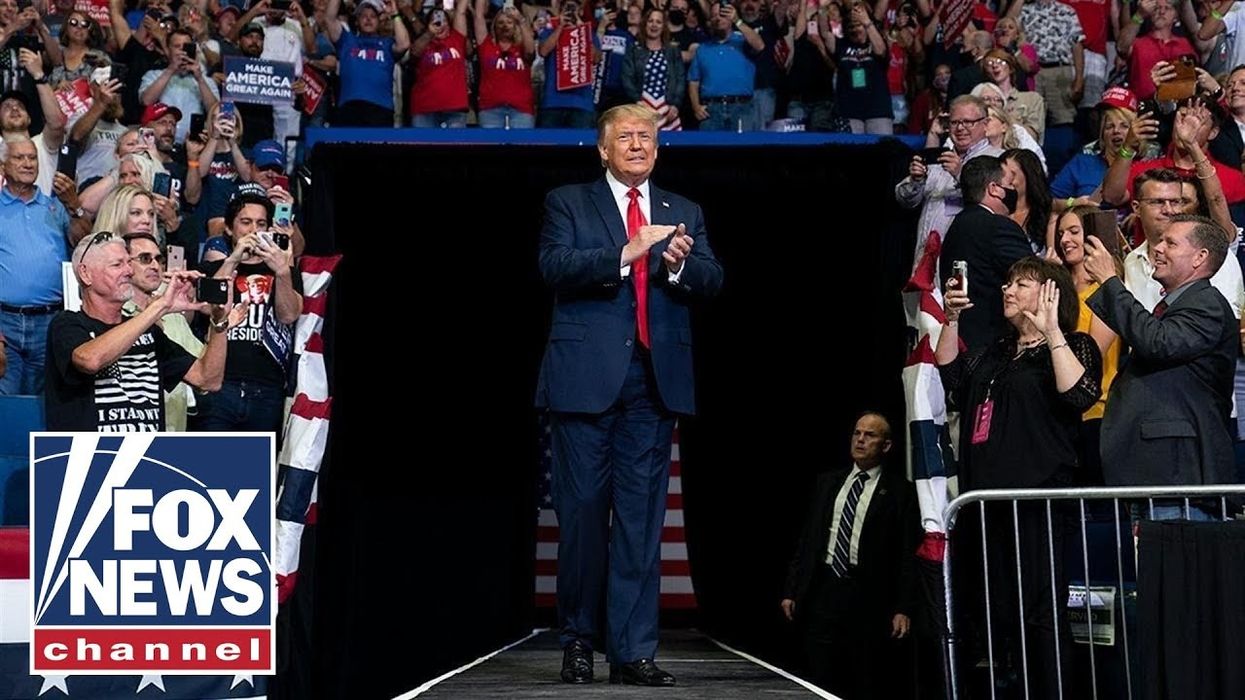President Trump is talking about "bedlam"— and even "violence in the streets"— if results aren't known on election night. In fact, he is trying to create bedlam where none exists. He's seeking to precipitate enough discord and doubt to cause citizens to disbelieve in the vote-counting process.
There should be no bedlam in the counting of ballots. It's a rather boring process, but it works very well.
For absentee and mailed ballots, election officials make sure that each ballot comes from an eligible and registered voter. That verification is a good thing; it assures the integrity of the election. That's something Trump and his fellow Republicans who are concerned about fraud should be supporting, not bemoaning.
The process will naturally take time, even days, because of the large number of mailed ballots this year as a result of the pandemic. There is nothing wrong about this. Waiting for official results is a feature of the system, not a bug.
Pennsylvania promises to be critical, if not decisive, to the race. There, voters can choose to submit their ballots by mail or vote in person. Under state law, mail-in ballots cannot be verified for counting until 7 a.m. on Tuesday. Trump now says voters should have "gotten their ballots" in "long before" Election Day. In fact, multitudes did just that. These ballots have been piling up waiting for this essential verification step to begin. It will take longer than just one night to process these millions of ballots. (This is why most states begin the processing days or weeks before Election Day.)
In addition, under a ruling by the Pennsylvania Supreme Court, the ballot deadline has been extended. As long as the ballots were cast and mailed by Election Day and get to officials three days later, they'll be counted. The U.S. Supreme Court has declined to disturb that ruling, at least for now.
Although this process is tedious and requires patience, there is nothing disorderly about it. The only "bedlam" will be if Trump manages to induce it.
It sounds as if Trump wants to derail the counting of ballots so that an accurate result can't be reached. That's the vote-counting version of Trump supporters trying to force a Biden campaign bus off the road. Never before has a sitting president openly called for a subversion of procedures in place for an orderly counting of ballots that citizens have a lawful right to cast.
Let's be clear about the cause of concern. I'm not especially worried when the president says "as soon as [the] election is over, we are going in with our lawyers." His lawyers must present evidence that will be evaluated on their merits according to the rule of law. That's how it should be.
In Texas, excessively litigious Republicans are attempting to disqualify more than 120,000 ballots already cast. I'm confident that the federal judiciary, like the state's, will reject this move as fundamentally unfair to the voters who did as they were instructed. But whatever the courts ultimately conclude, they will base their decision on appropriate rule-of-law values. That's all we can expect in a society that seeks to hold lawful elections.
Many are nervous about how the newly composed Supreme Court may decide any Trump v. Biden case involving the counting of ballots. I'm anxious about this, too. But the justices would be making their decision based on the merits. If the argument is genuinely sound in light of applicable legal principles, I think at least enough of them will listen.
What worries me more is the bedlam that Trump himself may cause outside the courts. The so-called "Brooks Brothers riot" in 2000 shut down the recount in Miami-Dade County. While I don't think it will be so easy to shut down the basic counting of ballots under state law, enough mischief could cause the process to run out of time. All state electors must cast their official votes for president on Monday, Dec. 14.
Apart from this risk, the gravest danger is throwing so much mud that the public gives up hope of knowing a fair and accurate result. Then a state legislature might try to repudiate the count of voters' ballots and appoint its own electors.
If the public doesn't believe the candidate with the most votes according to the official count of ballots actually won the race, the public will think the electoral system failed even when it worked.
That failure, solely based on the public's misperception of reality, would deprive voters of what the election is designed to produce: a winner that the people accept as their choice. The president's bedlam would have managed to negate self-government.
As Americans, regardless of party, we cannot let that happen.
Edward B. Foley is professor of law and director of the election law program at The Ohio State University's Moritz College of Law. Read more from The Fulcrum's Election Dissection blog.



















